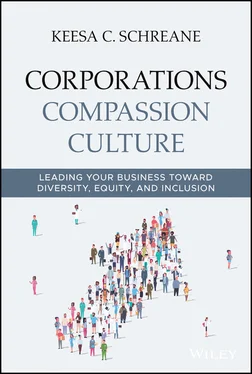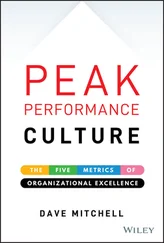1 ...7 8 9 11 12 13 ...17 Whole Foods Market cofounder John Mackey is another example of a leader who values a high degree of compassion. In his 2013 book Conscious Capitalism, he talks about the prevalent environment most employees contend with daily. In one example, he references the frequency of heart attacks occurring on Monday, which some experts attribute to the dread of returning to work. Mackey contends that work doesn't have to equal drudgery. When Mackey led Whole Foods Market (before Amazon acquired it in 2017), one element he focused on was improving health insurance for employees.
Underrepresented and Underestimated Leaders Are Compassionate Leaders Too
Mainstream corporate leaders, their business savvy, and brilliance at generating profits are on full display all around us as historical figures. No research required. They are important stories. But they are not the only important stories.
Historically, society has done a poor job highlighting non-mainstream corporate narratives that may serve as either cautionary tales or as celebratory stories about the power of leading and governing with equality, inclusion, and compassion. This is especially the case with underestimated and underrepresented groups such as women and Blacks, Indigenous, and people of color (BIPOC).
Things are changing. Business narratives are becoming more diverse and inclusive. During movements such as #MeToo and #BlackLivesMatter, social media, storytellers, and academics shared stories featured in media more prominently and consumed by the public more voraciously. They shared stories of business titans who included equality, inclusion, and compassion in their enterprises. These stories were of people of color, women, and other groups who were left out of the mainstream narrative previously. The momentum in which these narratives are now being consumed is another example of the slow, but steady, moving ship. These narratives are way overdue in being recognized.
Workers of color and women have had to navigate hurdles ranging from violence to modern microaggression to harassment, even when in leadership positions. Historically, these underestimated and underrepresented leaders prioritized social purpose, profit, and compassion just as the early industry titans who are more widely celebrated in historical texts and oral histories. Underrepresented leaders and their stories of brilliant business savvy, ethical treatment of workers, and compassion are just as worthy to be told, and repeated, as any mainstream business story.
Chapter 2examines ways in which underrepresented people were treated in business historically, as well as how underrepresented people emerged as business leaders, managing compassionate leadership toward people who make up those corporations. Generations of poor treatment in and by the mainstream culture make the case that businesses need to root out systematic racism before they can expect further social license to operate. This rooting-out process starts with bringing inclusion, equality, equity, and compassion into corporate cultures.
Compassion in business means inspiring employees and others in the business ecosystem to bring their best work, their highest intelligence, and their greatest level of creativity and enthusiasm.
Compassion needs to accompany inclusion and equality for workers to feel comfortable enough in their environments to think and act creatively and confidently, driving revenue generation.
Compassion complements inclusion and equality. All three are needed for business to evolve, continue its role as a driver of innovation in society, and generate revenues.
Inclusion, equality, and compassion have not traditionally been at the heart of business (nor of society in general). But times have changed, and a lack of compassionate culture can be the downfall of 21st-century businesses.
Workers and others in the business ecosystem have begun slowly course-correcting this flaw in old school business culture. This is an essential evolution, particularly after social changes resulting from COVID-19 and BLM.
Innovation and growth do not need to come at the expense of compassionate treatment of employees.
One way leaders and corporations falter is refusing to allow equality, inclusion, and compassion into their enterprises. This usually happens when they desire greater wealth than the nearest competitor by any means, lower employee pay, and neglect accountability. Milton Friedman's 1970s declaration solidified this construct into gospel.
Compassion, unlike philanthropy, is neither a separate subsidiary nor a spin-off. It is a behavior that must be a part of the business culture.
Andrew Carnegie is an iconic business titan of American history (that is, a powerful, wealthy, philanthropic enterprising White male). And yet, he is a great example of what can happen when a successful, well-known business leader makes a poor decision. Even if a corporate culture progresses and profits from unethical tactics, those tactics and activities result in mistrust that neither the employee nor the marketplace (that is, the customer) forgets.
When the corporation suffers, the shareholder ultimately suffers.
Historically, society has done a poor job recognizing accomplishments of individuals from underrepresented and underestimated groups who lead and govern with equality, inclusion, and compassion. This is changing. Highlighting these narratives is way overdue.
1 1. https://www.wsj.com/articles/mcdonalds-workers-strike-to-protest-pay-and-harassment-complaints-11558627417; https://www.cnn.com/2019/11/12/business/mcdonalds-protest-uk-gbr-scli-intl/index.html
2 2. https://www.nytimes.com/2020/06/10/business/adidas-black-employees-discrimination.html
3 3. https://www.businessroundtable.org/business-roundtable-redefines-the-purpose-of-a-corporation-to-promote-an-economy-that-serves-all-americans
4 4. https://www.talentlyft.com/en/resources/what-is-workplace-diversity
5 5. https://social-change.co.uk/blog/2019-03-29-equality-and-equity
6 6. https://www.npr.org/2020/04/27/843849435/hometown-heroes-or-whatever-low-wage-workers-want-more-than-praise; https://www.bizjournals.com/twincities/news/2020/07/14/target-shipt-walkout-threat-pay-changes.html
7 7. https://www.businessinsider.com/tyson-4500-covid-19-cases-as-meat-industry-blames-workers-2020-5
8 8. https://stories.starbucks.com/press/2020/starbucks-transforms-mental-health-benefit-for-us-employees/#:∼:text=Beginning%20April%206%2C%20Starbucks%20will,no%20cost%20to%20the%20user.
9 9. https://www.afr.com/work-and-careers/leaders/how-corporate-australia-is-tackling-the-mental-health-crisis-20191212-p53jgw
10 10. https://www.cnn.com/2020/07/14/business/verizon-jobs-ceo-hans-vestberg/index.html
11 11. https://www.psychologytoday.com/us/blog/the-clarity/201703/compassion-is-better-empathy
12 12. http://ccare.stanford.edu/research/wiki/compassion-definitions/compassion/
13 13. https://www.nytimes.com/1970/09/13/archives/article-15-no-title.html
14 14. https://www.forbes.com/sites/stevedenning/2017/07/17/making-sense-of-shareholder-value-the-worlds-dumbest-idea/#f42dc252a7ed
15 15. https://www.newsweek.com/business-roundtable-corporation-purpose-friedman-doctrine-1455975
16 16. https://www.businessinsider.com/jack-welch-the-former-ceo-of-general-electric-has-died-2020-3
17 17. http://www.irle.berkeley.edu/files/2005/Shareholder-Value-and-Changes-in-American-Industries-1984-2000.pdf
18 18. https://insight.kellogg.northwestern.edu/article/wage-stagnation-in-america
19 19. https://www.businessinsider.com/30-year-sp-500-returns-impressive-2016-5
20 20. https://www.independent.org/publications/tir/article.asp?id=1404
Читать дальше












